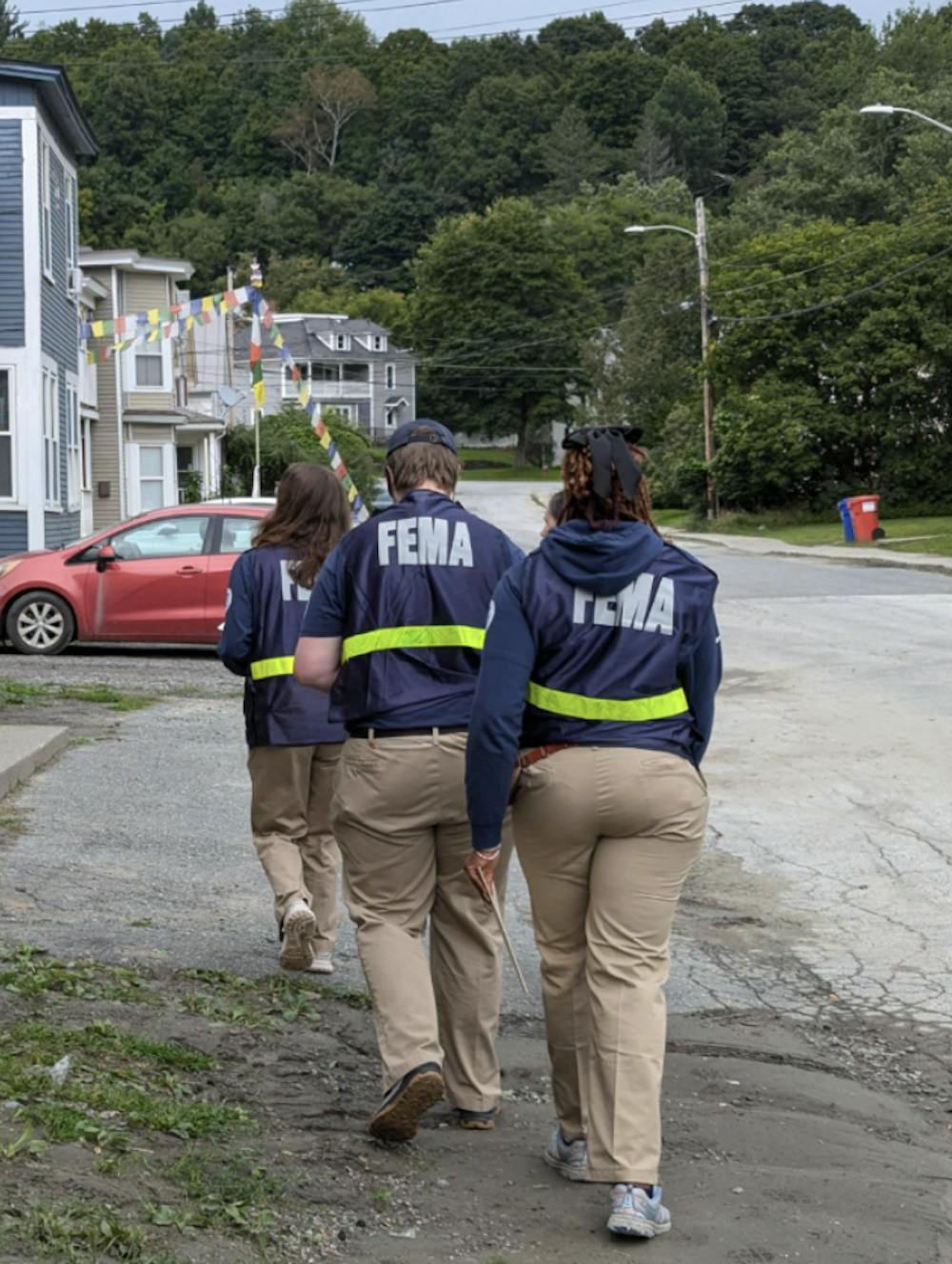On Aug. 20, President Biden approved a major disaster declaration, Disaster 4810, in response to the July 9–11 flooding which hit seven Vermont counties this past summer, making the Federal Emergency Management Agency (FEMA) assistance funding available in the affected counties. At the time of this announcement, FEMA teams were still in the state responding to Disaster 4720, a more severe flooding event that occurred last year in July 2023.
In order for FEMA to begin operating in response to a disaster, minimum damage amounts called indicators must be reached, explained FEMA external affairs coordinator Kimberly Fuller. Fuller explained that the time it took FEMA teams to assess the damage for indicators resulted in the time delay between the disaster itself in July and the declaration made by Biden in August.
In order to gain access to FEMA assistance, the governor of the affected state must contact FEMA for an Preliminary Damage Assessment (PDA). FEMA then assesses damages by both responding to calls and physically looking for damage in Joint State-FEMA preliminary damage assessments, and then sends its report to the President, according to Fuller.
While more major disasters, such as Hurricane Irene in 2011, may warrant an emergency declaration, which does not require a PDA, less major disasters require even more time, possibly months, to be assessed, especially in areas like Vermont with small, diffuse populations.
Middlebury alum Sofia West ’23, a former International and Global Studies major from California, has been on the ground with FEMA as a member of the FEMA Corps. FEMA Corps is a program within the AmeriCorps National Civilian Community Corps (NCCC) program for 18–26 year-olds that deploys teams based on national needs to work on projects accomplishing FEMA’s mission-critical functions: disaster survivor assistance, individual assistance, logistics, planning and geographic information system, and public assistance, according to West.

While in Vermont, West has primarily worked on project grants related to last summer’s flooding. However, after the declaration of this most recent disaster, her team was briefly deployed working in Disaster Survivor Assistance (DSA), meaning they spent time canvassing communities and helping them apply for assistance from FEMA.
“There was about an hour and a half between the declaration announcement and our first survivor interaction in the town of Barre, breaking an unofficial FEMA-wide record of fastest DSA (Disaster Survivor Assistance) deployment in history- pretty neat!” West wrote in an email to The Campus.
Fuller explained that FEMA teams “go where the people are” to help them gain access to funding. In order to access assistance, survivors have to register loss and damage, among other documentation.
In the approximately four days West’s team was in the field in August, they knocked on over 200 doors in flood-affected areas and spoke with more than 100 survivors. In Vermont, “going where the people are” has also involved setting up at local farmer’s markets to speak with locals about registering their damage and helping them through the process via an app on their smartphones.
Fuller explained that while citizens can apply for assistance online, lack of awareness about this option, limited Wi-Fi availability and complexities in the application process can make it difficult for aid to reach survivors. In order to gain access to funding, survivors have to be both eligible and have given FEMA all of the information it requires. DSA teams help facilitate that process.
FEMA is diligent in its work to reach survivors and help them apply for assistance, Fuller explained. The agency tries to contact survivors through various methods, multiple times.
As of Sept. 7, 1,103 individuals had registered for assistance in response to Disaster 4810, with $2,926,239 in aid already approved, Fuller told The Campus.
“Overall, it was an intense experience that necessitated a lot of interpersonal skills blended with FEMA assistance knowledge, but one that provided a more inclusive foundational awareness of FEMA operations,” West wrote of her time doing DSA work.
There are currently 10 DSA teams and two FEMA Corps teams operating in Vermont. DSA teams have registered approximately 200 survivors over 3,587 survivor interactions and 8,000 home visits. Teams have also visited 300 community-based organizations, 550 businesses and 300 public spaces.
FEMA also provides public assistance funds to local municipalities to support the reconstruction of infrastructure, such as roads, and support local nonprofits, such as food banks, impacted by the flooding.
Congress closed its most recent session in January without approving additional funding for FEMA as it traditionally does, prompting the public to worry about assistance fund availability. Local and government nonprofit funding will be put on hold, but individual assistance will remain unaffected by this lack of funding, Fuller explained.
West expects additional FEMA funding to eventually be approved.
West noted that in an ideal world, Vermont would become more prepared for natural disasters, and that increasing preparedness is a key part of FEMA’s mission. However, for now, FEMA’s focus remains on more immediate recovery in the state.
“FEMA has been steadfastly supporting Vermonters through multiple disasters and will continue to do so as long as there is a need,” West wrote.
Correction 9/13/24: This article has been updated to reflect the cooperation of Vermont and FEMA in the joint State-FEMA preliminary damage assessments. It has also corrected the amount of funding FEMA anticipates being released to individuals for the recent July flooding.
Ben Wagner (he/him) is a Local Editor.
Wagner has previously served as an SGA Writer and Staff Writer. He is an IGS-Global Environmental Change major, and is minoring in Religion. When not up to other shenanigans, Ben loves playing outside and riding his bike.




